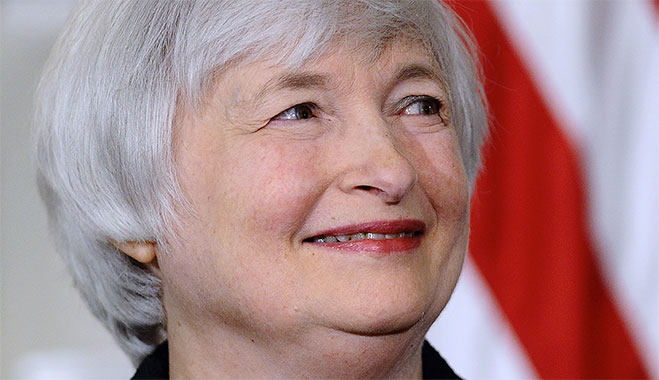
Following a 56-26 Senate vote in her favour, Janet Yellen has been approved as head of the Federal Reserve and later this month will become the first woman to hold the position in the institution’s 100-year history. The Brooklyn-born economist has been the clear favourite to succeed Ben Bernanke since he announced his plans to step down last year, having her service as vice chair for three years and her part in many of the Fed’s most influential decisions of late.
“The American people will have a fierce champion who understands that the ultimate goal of economic and financial policymaking is to improve the lives, jobs and standard of living of American workers and their families,” said President Obama in a statement. “As one of our nation’s most respected economists and a leading voice at the Fed for more than a decade – and Vice Chair for the past three years – Janet helped pull our economy out of recession and put us on the path of steady growth.”
Yellen will succeed Bernanke when his term expires on January 31 and is expected to continue with the Fed’s aggressive bond-buying programme for some time yet. Although the stimulus was pared by $10bn in January, the amount still stands at $75bn per month and so a decision to taper the sum further still will likely come during Yellen’s tenure.
The 67-year-old’s dovish leanings, however, are the reason why the vote was one of the closest in the institution’s history and something that certain onlookers are less than convinced by, fearing that monetary stimulus on this scale will ultimately result in out-of-control inflation rates.
The 67-year-old’s dovish leanings […] are the reason why the vote was one of the closest in the institution’s history
Nonetheless, the Fed’s quantitative easing policies and record low interest rates appear to be having a positive effect on the US economy, and have been instrumental in bringing down the US unemployment rate – an area that Yellen expresses an especial interest in.
Yellen’s service so far is perhaps best characterised by an unerring focus on unemployment and how it is the country’s central banking authority can reduce joblessness. “The mandate of the Federal Reserve is to serve all the American people, and too many Americans still can’t find a job and worry how they’ll pay their bills and provide for their families,” she said at a White House ceremony in October.
Regardless of Yellen’s approach, her tenure will span a term of relative uncertainty for the US economy, as the country’s central bank prepares to reduce the country’s dependency on monetary stimulus and boost employment opportunities wherever possible.


